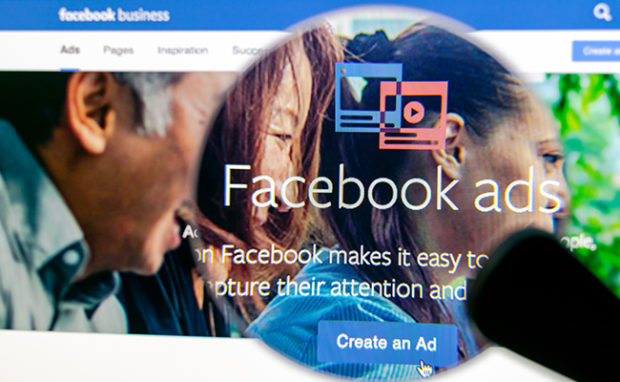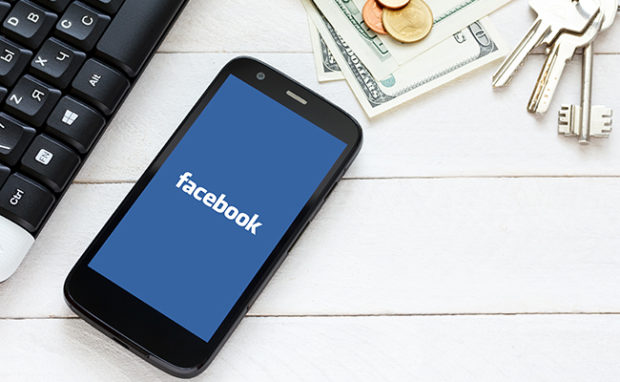Your Facebook Ads Guidelines Cheat Sheet for 2019
In the digital age, Facebook ads are one of the most cost-effective ways to get attention on your brand these days. The audience reach is huge and they are incredibly affordable, this is why it’s so important to know how to make Facebook ads.
Unfortunately, most small businesses are not getting everything they should be from their Facebook ads. A survey released by a website designer showed that 62 percent of all small business owners feel as though their paid ads aren’t hitting their target market. Definitely not comforting or reassuring when you consider the vast amount of businesses that advertise on Facebook. It’s truly astonishing, so we want to help you make Facebook Ads cheat sheet. This will provide an average cost and a general outline of what’s available to you.
However, there is such great potential for small business owners to use the power of these ads to reach billions of people all across the world. More importantly, to hit the specific segments of people that would be more likely to convert on buying their product. While it can be challenging at first to get the hang of things, once you do it, it can be 100 percent worth it. In this article, we’ll cover how to run Facebook ads.
This cheat sheet is meant to help you get the most from Facebook in an easy to understand format. It will cover basic Facebook advertising guidelines limited to but including:
- Facebook ad types (products or services)
- Facebook ad costs
- Facebook ad targeted audience (Gender identity, Origin religion, Facebook users, Sexual orientation)
- Facebook ad copy and creative
It’s vital to have an understanding of what you’re working with when getting started with Facebook ads. Let’s get started with the different ad types available to you.
Posting Ads on Facebook
According to Facebook, there are 11 basic kinds of ads available on the platform. These include:
Video – Video ads that feature sound and motion (more on Facebook video ads here)
Post Engagement – Ads meant to boost page posts to obtain more engagement
Event Responses – Video or image ads designed to drive awareness and responses for events
Page Likes – Ads intended to drive page likes and engagement
Image – High-quality but simple visual ads (more here)
Collection – Ads that showcase products from your store’s catalog
Carousel – Display up to 10 videos or images in the same ad, each with its very own link (more on Carousel ads here)
Slideshow – Ads that use sound, copy, and motion to tell brand stories
Canvas – Mobile-optimized and full-screen experiences for your customers, directly from ads (more on Canvas ads here)
Lead Generation – Carousel, image or video ads that present your leads with a form, after they engage with your ads (more on Lead Ads here)
Offers – Ads offering discounts
The ad type you choose will depend on your business type and whatever your marketing goals are or may be. It’s important when learning how to run Facebook ads, that you determine your marketing goals up front.
Facebook Ad Costs & How to Run Facebook Ads
Facebook is such a popular business marketing choice, even though there has been such bad press about how it handles your data. Very similar to the auction for google ads, there is a bidding process in which you’ll determine where your Facebook ad appears and how much you’ll pay for each and every click. You’ll also indicate how much you want to pay for certain actions on any given ad, such as a view or a conversion, a click, etc. You can manually do this or have Facebook do it directly for you.
Related Articles
WHY GOOGLE ADS GOT REBRANDED
FACEBOOK PRIVACY
Various factors can affect different Facebook Advertising Costs, including the following:
- When your ad campaigns run (time, date, during peak hours when the competition is fiercest)
- Your bidding method (set a bid limit on every unique bid or just set your average bid)
- As you can probably guess, ads costs can vary quite a bit.
- Your specific audience
- Your Relevance Score
- Ad placement
We’ll take a look at the averages here:
WordStream analyzed hundreds of client accounts to calculate the average cost per click (CPC) and cost per action (CPA) on Facebook across eighteen different industries. They found that the average across all business types was $18.68 per conversion and $1.72 per click.
Living outside the US, AdEspresso performed a study where it looked at 2017 data to gauge average ad costs in the U.S. and other areas. Here is what we found:
CPC average targeting those between 13 and 17 (Q1) = $0.11
CPC average of Instagram ad placement (Q4) – $1.15
CPC average of Facebook ad placement (Q4) – $0.50
CPL average per month – $0.12
CPL average per week (Q4) – $0.14
CPL average cost for women – $0.1CPC monthly average – $0.40
CPC average on Sundays – $0.40
CPC average on Tuesdays and Thursdays – $0.50
CPC average of targeting women (Q4) – $0.64
CPC average of targeting men (Q4) – $0.50
CPC average of optimizing for link clicks (Q4) – $0.44
CPC average of optimizing for impressions (Q4) – $3.79
CPL (cost per like) average for a page like campaigns – $1.08
CPL average targeting those 55 and up (Q4) – $0.33
CPL average targeting those between 13 and 17 (Q4) – $0.04
CPC average for all countries – $0.97
CPC average targeting those 65 and up – more than (Q1) $0.70
CPL average cost for men – $0.11
If you are aware of ad costs on the platform, it allows you to get a general idea of how much to budget for Facebook marketing and shows how much it will eat up. It is something that is always being adjusted.
It pays to spend extra time to accurately define who you’re targeting. Hopefully, this article will give you a general outline on how to run and post Facebook Ads.
Conclusion
The reality of this new era of social media digital marketing using your Facebook page makes a huge difference when done right, along with other tools like landing page optimization and proper SEO techniques. Give it a try you will not be disappointed!
Published February 13, 2019; Updated May 21, 2019.





